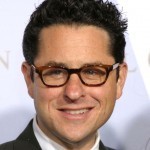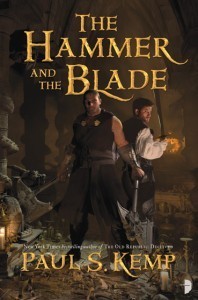Joshua Unruh's Blog, page 3
February 13, 2013
From Tabletop to Paperback – Prolegamena Part 2

Full disclosure, this bit is definitely for the gamemasters more than the career players. That's okay, though, there's still good advice to be had, and it starts here.
Hey! Career players! Yeah, you guys who show up every week with a handful of dice, a bag of chips, and an inability to recall non-player character names. GM SOMETHING!
First, you'll give your usual, beleaguered GM a much deserved break. Second, it'll give you a new appreciation for her work. Thirdly, you might discover you have a talent for it. And, last but not least, it'll make this chapter much more useful.
The Blessing of Lonely Fun
You may recall we discussed the dangers of Lonely Fun, such as finding yourself so bogged down in the details of a fictional world that your players are in a straitjacket of playing through your plots. Or maybe there's just so much cultural information, they feel confused about what's acceptable and what's not. If your wandering adventurers are trying to figure out what hat to wear on this day of the week, you might be doing it wrong.
But when you shift from gamemaster to author, Lonely Fun can be your best friend. There are still dangers, of course, but they can become strengths with a little work. For instance...
Writing is a fairly solitary pursuit (although I'll talk about ways to ameliorate that in future posts), so getting used to working by yourself might be easier on you.
Even better, you'll discover that so much of the work you do as a GM directly ports over to Pre-writing.
Best yet, so very much more of your prep makes it into the final piece (which, as a long time GM myself, I find to be decidedly NOT the case at the game table).
But let's talk about the good news before the great news.
Mastering the Pre-Writing
Real quick, here's a recap of the bare minimum pre-writing you ought to do.
Story Question
Character List
Scene List
The Climax
The Resolution
Now let's break them down one at a time.
Story Question
The odds are, when you pitched the game you wanted to play to your group, you had an initial arc in mind. It might have been a "how we met and became a team" arc. Or it could be an "introduction to the world" arc (even if The World is just the seedy underbelly of the city they'll never leave). Maybe everybody is up to speed on the the world and it has a built in reason to start as a team, so you get to jump right into a proper arc. In that case, you probably want to hook them as hard and fast as you can with something that sets this game apart from other campaigns.
If you've done this as a gamemaster, you're already figuring out Story Questions. "Will they gel into a team in time to survive the danger?" is a solid Story Question, and used to great effect in the first Mission: Impossible movie. "How will the noobs handle an introduction to a larger world?" is also a good Question. Think about Starship Troopers or even Ghostbusters.
The "everyone's up to speed so hook 'em hard and fast" Story Question is a bit too nebulous for specific examples. But since every GM I know considers that the meat of the RPG sandwich, I probably don't have to give any. You're already thinking of your best campaigns and retroactively applying Story Questions to them.
See? You already do this all the time. You may not do it well, but that's because RPGs shouldn't be plotted as tightly as a novel and the Question can change quickly or without warning because of what your players do. That's fine! Specific Story Questions are still a place I struggle, but I'm getting better at them all the time. And my games are getting better as well.
Character List
Characters are both easier and harder when it comes to connecting GM skills with writer skills. The harder part is that, as a GM, you're used to your group handing you a pile of main characters. You don't have to make them up all by yourself! Finally, some work the GM doesn't have to do. Amiright?
Although coming up with characters isn't exactly a foreign concept to GMs, they just tend to be antagonists and secondary/supporting characters. Still, Batman & Robin aren't nearly as interesting without Jim Gordon and the Joker, so don't discount the importance of antagonists and supporting characters.
To switch gears, GMs grow very used to taking a disparate group of weirdos and figuring out how and why they would work together. Sometimes this is accomplished with world building (creating an organization or important NPC for the heroes to work for) and sometimes with plot (the heroes don't know why, but the same unseen group or person wants them all dead). This is where it gets easier as an author.
If you're creating a story where the Plot, the Character, and the Setting all lean on one another as I've discussed before, then your characters might be a disparate group of weirdos, only this time you've created them to be weird in ways that will make for interesting and exciting stories.
I don't have to sit with six character sheets in front of me and ponder how I'm going to get them to care about one another. Since I'm making the characters from scratch, I already know which ones will rub the others the wrong way, or who the group will think of as a dumb hick, or who is secretly somebody else's half-sibling.
This is one reason I've become a huge fan of group character generation in my games. But that hasn't always been the case, and my ability to tie together characters I didn't make up -- most of whom have personalities painted in only the broadest strokes -- makes doing that work on the front end a piece of cake.
The Scene List
In a lot of rules systems, such as Savage Worlds or Dungeons & Dragons 4th edition, the threats have pretty detailed stat boxes. You can wing them (I certainly have), but it's better if you have them worked out, collected, and handy. Or you have to plan skill tests out ahead of time just to make sure you aren't caught flatfooted. Which skill will I allow for building a makeshift bridge? How many agility or athletic checks should it take to swim the raging river? That kind of thing.
While these are fairly rudimentary examples of it, this is what planning a scene list looks like. You may wind up not needing those stats or your players may go such a different direction that your skill tests never happen. But you still looked at the characters, their goals, and how they normally approach situations, then made an educated guess about how they would choose to approach this situation.
Those guesses naturally led to particular scenes, all of which are links in a chain to the resolution, and require things like stat blocks, skill sets, or at least some planning of locations and secondary characters who might be present.
That's all a scene list is. How will my characters move from the Big Event that sets their story in motion to the Climax that answers my Story Question? If the Big Event is A and the Climax is Z, then the scenes are B through Y.
Now, as a GM, I never like to have a combat that's just about killing something. The fight has to tie into protecting or rescuing someone or something, or it has to be the outcome of a difficult choice, or it has to be tied to something on a character sheet. Otherwise, it's just throwing dice around and doing math. Who cares?
Similarly, as a writer, I need to think in terms of Scene Questions. How is this scene moving my characters toward the Climax? In other words, how does answering this Scene's Question add a brick in the wall that will eventually answer my Story Question?
Now, like I said above, a lot of times, the scene prep I do as a GM is thrown right out the window. My guesses about how the players would react to a situation might have been educated, but they were still guesses. And guess can (often) go wrong.
The same thing can happen, to some extent, when I start writing my novel. Sometimes unexpected new ideas occur to me or a character's voice fleshes out and I realize she would NEVER do the thing I'd planned for her in the scene list.
That's okay, it happens! But if you know where your characters need to be after that SNAFU, then it's easier to replace the defective link in the chain with a newer, stronger one.
I'll talk more about how that happens and what to do about it after I discuss Climax and Resolution.
But this post is getting a bit long, so I'll save those two pre-writing items and the big wrap up for next time. See you then!
February 11, 2013
From Tabletop to Paperback: Prolegamena Part 1

Welcome back to From Tabletop to Paperback! Hopefully the first few posts showed you how the things you already do well as a gamer can serve you in your transition to writing fiction. I snuck a lot of good advice in there about Character, Setting, and Plot that you'll need to keep in mind as we roll forward. But now that you believe you can do the work, it's time for me to show you how to do the work.
 Pre-Writing aka the Writing You MUST Do Before You Write
Pre-Writing aka the Writing You MUST Do Before You WriteYou know when you were a kid and your mom stuck you with dish washing duty? And that was bad enough, right? But then she made you rinse the dishes first. And, seriously, she'd stand there and tap her toe to make sure that you rinsed them properly. Then you'd say something like, "Why am I washing the dishes before the dishwasher WASHES THE DISHES?!" Then your mom would say, "That's it, young man, you just bought yourself dish duty for the month." You'd bluster and declare your innocence while your dad just shook his head as if to say, "You'll learn one day, son."
Pre-Writing is exactly like that only you play the part of yourself and your Mom. And if you don't do it, Future You is playing the part of your Dad.
Novels are long*. They also take you a long time to write**. You also don't write them all in one go***. In between bouts of writing, you're likely to sleep, go to work, run a million errands, plan a birthday party, listen to music, watch TV and movies, read other novels, talk to myriad other human beings, have spiritual epiphanies...you get the idea.
Any one of these things could easily cause you to forget what you were writing. The fact that you could do all of them in between rounds of writing means you're going to spend a lot more time remembering what you were writing than you will actually writing.
Unless you do your map it out with Pre-Writing.
Mapping It All Out

I'm terrible at road trips. All I want to do is get from where I am to where I want to go as fast as possible. The intervening distance is an obstacle for me to overcome so I can enjoy the destination. The world invented the interstate for me.
The idea of meandering around looking at alligator farms and giant balls of twine and places that presidents allegedly slept sounds torturous****. It's a bunch of pointless hours in the car -- or, God forbid, the bus -- with people you swear you liked before your tenth hour of listening to road noise and their "travellin' mix" while looking at crap, oddities, and nonsense.
And writing your story will be exactly like this if you don't finish your Pre-Writing. You have to create character descriptions (choose your traveling companions), you must ask yourself a Story Question (Plot your destination), you have to craft a scene list (map your route), you have to plan for sequels to regroup after some of your scenes (where are the gas stations and bathrooms?). You might even want to have a writing coach standing by (GPS).
I didn't even mention clearing all this with your family (checking weather reports) or the backstory you write as a Prologue and then inevitably cut because nobody cares but you (packing clothes and toiletries). You have a lot of work to do before you get in the car.
Meandering about on vacation might be somebody's idea of a good time, but we've established that writing (if you want to do it well) is work. And I'm sure there have been and still are successful novelists who just start writing to see where the story takes them. But for every one of them, there are likely dozens, hundreds, thousands of unfinished novels stranded on the side of the road for lack of gas and a spare tire.
 The Bare Minimum
The Bare MinimumI could probably write whole books on each one of these, but below you'll find the bare minimum Pre-Writing I believe you have to do, along with a brief description of what it is and why it's important.
Story Question: Remember, this is the crux of the book. This is the question to which the reader is reading to find the answer. Without this, you probably don't have a story.
Character List: Remember how we talked about the thousands of words you'd probably have to write in order for your main character(s), your antagonist(s), and your secondary character(s) to read like actual human beings with thoughts, wants, and desires? Yeah, that goes here.
Scene List: What's going to happen that drives your Characters toward answering the Story Question? Or what steps will they take to answer it? How does each step lead naturally to the next, and when do you need to take a sec to recap and make sure the reader is following?
The Climax: Sure, you know the answer to your Story Question, but how do you answer it?
The Resolution: What is the emotional impact you expect the Climax to have on your readers? Happiness? Depression? Smug satisfaction at a well-deserved comeuppance? Explain it in 3-5 sentences so you know what you're aiming for from the first words of your story.
Each of those items covers several sub-items, and I could go into painful detail on each of them. But if I did, that would be my process, not The Process. When it comes to Pre-Writing, there are always different strokes for different folks. Remember how I never fill out my character descriptions? Well, all the time I save there I wind up sinking into my Story Question.
You may have the same issue or a radically different one. That's the kind of thing you learn the more you write, and it's why I said I could go for a book on each one of those items. And maybe even a book on each of my sub items.
That's why this is the bare minimum. You have the essentials of your trip planned out when you've finished these. It doesn't mean you won't take a wrong turn or run out of gas along the way, but it does make those things a lot less likely.
Mastering the Game
Most of the time, I'm the GM for whatever group I play with. I've done various amounts of game prep ranging from full notebooks all the way down to three bullet points on a napkin. I've run games with rules you could fit on a single sheet up to systems with multiple compendia. I know a thing or two about game night preparation.
I can apply a lot of that wisdom to Pre-Writing, and I'll show you how next time. It's a worthwhile comparison because, as every GM knows, all that prep will never survive a run in with Player Characters unscathed. The same goes for your Pre-Writing and your story's characters, but if you're ready for that, then it isn't nearly as worrisome or scary.
See you next time for Prolegamena Part 2: Lonely Fun and the Pre-Writing Package.
*Well, at least 50,000 words. Which gets less long with every novel you write. Of course, you're going to write longer and longer novels, so my point stands.
**Well, NaNoWriMo will help you get that time down to a month, but that's still long in work-hours if nothing else.
***I'm sure somebody somewhere does, but they are a Mayor McCrazy of Crazytown.
****Remember, this is as long as I have a destination. I've actually dreamed for a while about a trip that is all about the trip and what you see on it rather than about going somewhere.
February 7, 2013
This Week’s Reason(s) Copyright* is Baloney Sandwich**

 For a long time I've been thinking about a series of post called "This Week's Reason Copyright is Baloney Sandwich," but I've hesitated. I feared that the world wouldn't give me a weekly reason to get angry about intellectual property land grabs. Well, this week gave me not one but two and I decided that "This Week" didn't have to mean "Every Week." It will be interesting to see how many weeks out of the year I have these posts come 2014.
For a long time I've been thinking about a series of post called "This Week's Reason Copyright is Baloney Sandwich," but I've hesitated. I feared that the world wouldn't give me a weekly reason to get angry about intellectual property land grabs. Well, this week gave me not one but two and I decided that "This Week" didn't have to mean "Every Week." It will be interesting to see how many weeks out of the year I have these posts come 2014.
But anyway, now on with this week's cavalcade of BS.
Eyes Meet Roll
So Marvel (Disney) and DC (Time-Warner) filed a joint trademark on the word "super-hero." I for one am shocked, shocked, to hear that Disney and Time-Warner are stealing language and characters out of the public domain. There is absolutely no precedent for this!
Neither of these companies invented the term and they aren't the sole users of it. Adding a ™ to super-hero is a Jedi mind trick of BS even these two bastions of greed should be ashamed of.
Thanks to Boing Boing for my discovery of the story.
So GW Stands for "Goliath Wins"?
Games Workshop, creators of various Warhammer and Warhammer 40,000 fantasy and sci-fi games, miniatures, novels, et al, sent a notice of trademark infringement to Amazon about a self-published book called Spots the Space Marine.
First, that trademark is complete BS because space marines have been a staple of science fiction for nearly as long as there has been science fiction. Space marines were here before GW and, in fact, the authors who went before GW made it possible for GW to create their own, admittedly unique take on the concept.
One with a legal bend will note that Games Workshop has a trademark on "space marine" in the areas of board games, parlor games, war games, hobby games, toy models and miniatures of buildings, scenery, figures, automobiles, vehicles, planes, trains and card games and paint, sold therewith.
So fiction isn't in that list. Which means that a big company sent a spurious notice of infringement to another big company to screw over a self-published author, and all over a term they didn't actually invent and that wouldn't have been useful to them without all the usages before they used it.
Friends of mine who buy Games Workshop stuff often tell me that GW hates them, yet they buy their stuff anyway. I give them a hard time about this, but now it's moved beyond bad customer service. They don't just hate their own customer base, guys, they now hate free expression. Free expression which made their success possible in the first place.
Yeah, sure, there are obviously no issues whatsoever with copyright and trademark. Nothing to see here, move along.
*A quick explanation of why I think copyright is institutionally BS, please see the video in this post.
**For the reasoning behind this term, please see this post.
February 6, 2013
A Quick Story of Initials

This is a short story about my son. Well, truthfully, it's more about his teacher, or at last how clever she is. We're all really big fans of her's here, my son, wife, and I. I hope this short story will explain a little of why.
As usual, though, I have to give a little background.
My son has been playing with language lately. Testing out words and rhymes and new usages. There have been some amazing inventions from him, but also some pushing of limits. He's said a few curse words (honestly, I have no idea where he might have heard them...), but I've nipped that in the bud.
Instead he's used non-curse words, like "eyeball" and "toilet," as curse words. (A very complicated spot for me since I don't want to discourage using new words even when I know exactly what he's up to.) But more than that, he's managed to skirt the edges of words I'd rather he not use but can't quite bring myself to come down on him about.
Case in point, he declares things are BS. He uses only the initials and his contextual usage is flawless. This makes it hard for me to get too upset about it. I'm pretty sure he doesn't even know what the initials are supposed to stand for.
So he's been doing this language play at school as well. Again, I don't want to misrepresent this. Most of this is great learning potential and showing the world that -- surprise, surprise -- my son has great facility for language.
But then one day at school, he declared something to be BS.
The teacher glossed over it, but the other students had to know. "Teacher, teacher...what's BS?"
Without missing a beat, with nary a batted eyelid of hesitation, my son's fantastic kindergarten teacher responds, "Baloney Sandwich."
I have no idea if she invented that or heard it elsewhere and I'm the only one who doesn't know about it because I'm a heathen who will just say the dirty words. Either way, the wife and I love it so much we say it all the time now. My friend Jeff has started saying it to see how long before it comes back to him.
That's an inspired bit of teaching right there and an addition to my own vernacular that I can't get enough of. So thank you, Miss Awesometeacher!
Hopefully this has brought a smile to your face, dear reader. This knowledge will also help you understand an upcoming blog series title, so it's a doubly useful post! And that's...
February 4, 2013
Ignite OKC #4 Achievement Unlocked! Level Up!

In November I appeared at the Oklahoma Creativity Forum's after party, IgniteOKC. Along with several other speakers, I spoke for five minutes about a topic I was passionate about and tried to transfer some of that passion. There were no breaks in the five minutes and I'd prepared slides that moved forward every 20 seconds whether I liked it or not.
I have never had even one second of nervousness about public speaking...until the morning of Ignite. It scared me to death. But I did it anyway, and the video is finally available. I'm posting it here for all the world to see because I'm proud of it both professionally and personally.
Professionally, this is not only "why copyright is a damn mess" in a tight package, but it's the shortest pitch I can make for how the Consortium plans to play a whole different game. On the personal level, I'm a firm believer in doing things now and then that really scare you. Being more confident than I really have a right to be, I don't find enough things that really put a wobble in my knees. This did it, though, and I made it through.
I don't think I can stand to watch it, though. You guys do it for me. I'll be hiding over here.
PS: If you'd like to see some of the other talks from smart people (some of whom I'm lucky to have turned into friends since IgniteOKC), you can find the Youtube Channel with all the 2012 talks, as well as the past talks, here.
January 30, 2013
A Tale of Two Camps

Yesterday I had JJ Abrams on the brain so hard I watched Star Trek and thought about rewatching Alias. This morning, I read a fascinating interview with Steven Soderbergh. These two guys got into my head and made me realize something about the fiction I'm enjoying lately. Basically, everything I'm enjoying right now comes from two camps of thought, and these guys can represent them well.
 The Abrams Camp
The Abrams CampAbrams makes beautiful movies and tv shows that are pulse pounding and interesting. They're usually pretty smart with well-oiled plots as well. But if it comes down to Smart versus Exciting, Abrams is going to go with Exciting every time.
He considers himself to walk in Spielberg's footsteps. The craft of movie-making will be in full effect, but these movies are here to make you eat the living hell out of some popcorn.
For examples, watch the first season of Lost and Alias, 2009's Star Trek, or Super8.
 The Soderbergh Camp
The Soderbergh CampThe Soderbergh Camp is just as likely to give you a low-fi indie thing as it is to give you a slick, exciting film that makes you eat popcorn by the handful. But even when it's giving you slick and exciting, there's more going on there. Sometimes the craft slips or becomes a little rote, but there's always a lot of thinking and character work going on beneath the surface.
Bottom line, even when the Soderbergh Camp makes pulp entertainment, it's always doing something else beneath the pulp.
For examples, Sex, Lies, & Videotape, Out of Sight, Ocean's 11, or The Good German.
No Judgment Zone
These descriptions should not be read as value judgments. Remember, I led with saying these are the two camps I'm enjoying these days. Not necessarily everything from both camps tickles my fancy (sometimes slick and exciting is also stupid and sometimes multi-layered is just muddying up the better bits), but these are the generalized approaches I love.
Figuring this out, or at least putting names to it, has already helped me understand some of the issues I've had with my creative endeavors lately. Basically, I've left myself in a really confusing place.
 The Unruh Camp?
The Unruh Camp?If you ask me what camp my work is in, I'd say the Abrams Camp. But the fact of the matter is, when it comes to my work habits and the way I plan my fiction, I write as though I'm from the Soderbergh Camp.
Even if I have a thrilling story half planned, I often find it difficult to explain my Story Question succinctly. As much as I love plot driven pieces, I often start with a theme, a feeling, or a character who needs twisting and then create a plot to get at that.
Basically, I really and firmly believe I want to be one thing until I actually have to do the work, and then I realize I have to be the other thing in order to finish the work. But when it's finished, you could very likely mistake it for the first thing.
I can think of one writer -- a comic book writer, of all things -- who manages to synthesize these camps nearly perfectly. Maybe that's what I'm working towards. Or maybe I'm just figuring myself out as a writer on the job. (The best way to figure it out, by the way.)
What about you folks who have read a few things by me? Do you have any thoughts or theories on which Camp I trend toward? Maybe you see neither one? I'd be interested to hear from you guys on this, because if I actually stopped to gaze at my own navel that hard, I might never come out again.
January 28, 2013
Because Nobody Asked Me: What Do I Think about JJ Abrams on Star Wars?

 Very recently, a friend brought it to my attention that it had been a month since I posted to the blog. I've been writing mad posts, but admittedly for another blog. And that's only the beginning of the neglect here. Still, as a guy who really cares about popular culture and genre fiction done well, I'm going to shortly weigh in on the burning nerd question of the moment...
Very recently, a friend brought it to my attention that it had been a month since I posted to the blog. I've been writing mad posts, but admittedly for another blog. And that's only the beginning of the neglect here. Still, as a guy who really cares about popular culture and genre fiction done well, I'm going to shortly weigh in on the burning nerd question of the moment...
How do I feel about JJ Abrams on a Star Wars movie?
The more interesting thing to me is the irony of Disney, the creator of our copyright problems, taking a beloved piece of pop cultural landscape and opening it up to the world for reimagining and reinvention in a way its creator only had minor interest in.
But as far as JJ, my thoughts boil down to two things.
I'm a huge Star Trek fan and JJ's reboot/reimagining is the best thing since Original Flavor. It gave me back the thing Star Trek had been missing since Original Flavor turned into movies about saving whales and The Next Generation let nonsense words take over for good writing. Excitement.
Star Wars sure as hell can't get any worse.
December 26, 2012
Review: The Hammer and The Blade (Novel)

A while ago, I said I'd do reviews only when I read something I really enjoyed or that really caught my attention. That happened the last couple weeks with The Hammer and the Blade, although some of the reasons it caught my attention are because of its publisher, Angry Robot. I'll try and explain all that, why you might enjoy the book, and why the ending sorta made me cringe twice. Hopefully it'll take less than a thousand words.
 First, a bit about Angry Robot just to get it out of the way and because what I have to say is fair to me as a reader but not necessarily to any one novel.
First, a bit about Angry Robot just to get it out of the way and because what I have to say is fair to me as a reader but not necessarily to any one novel.
This is probably the seventh or eight Angry Robot published novel I've read. I have found almost all of them disappointing and several of them frustrating. The reason for this is also the reason I really appreciate Angry Robot.
You see, Angry Robot gives first-time novelists with very clever ideas and enjoyable plots a shot at getting published. But as near as I can tell, Angry Robot does not story edit these first-time novelists. Which leads to clever ideas and enjoyable plots getting mired in rookie mistakes. Hence the disappointment and frustration.
Now, before anybody thinks I'm getting too uppity about my own work, the reason I recognize these obvious rookie mistakes is because they're mistakes I keep making. The difference is, my publisher also prides itself on being a school and my rookie mistakes get caught, I get coached through them, and they don't (usually) make it into publication.
So, that said, I am equally in love with Angry Robot and want to throttle them with my bare hands.
But then my good friend Jeff (source of most of my Angry Robot reading) loaned me The Hammer and The Blade by Paul S. Kemp. Jeff knew that I hadn't read much of Fritz Leiber's Fafhrd and the Gray Mouser, but that I'd loved what I had read. He described Egil and Nix, the protagonists of The Hammer and The Blade, as Leiber on methamphetamine. In addition, this was not Kemp's first novel, so I hoped to avoid the usual Angry Robot issues. How could I not read it?
And reading it was a very good decision. The characters, from the protagonists through the jerk who helps kidnap them and on down to the villain and his sisters, are vivid and interesting. The wit is sardonic and sarcastic without growing too quippy. The plot is fast-paced. Lastly, the worldbuilding is dexterous by dangling interesting bits of entertaining information that -- and this is a rare gem in fantasy novels -- leave me wanting to know more rather than bogged down in details.
helps kidnap them and on down to the villain and his sisters, are vivid and interesting. The wit is sardonic and sarcastic without growing too quippy. The plot is fast-paced. Lastly, the worldbuilding is dexterous by dangling interesting bits of entertaining information that -- and this is a rare gem in fantasy novels -- leave me wanting to know more rather than bogged down in details.
No, seriously. Egil worships a guy who is the Momentary God...as in, he was only a god for a moment. Dur Fallin is a city with ten thousand of its own stories. Hell, just the bar that Egil and Nix buy, The Slick Tunnel, seems to have all kinds of story potential. Affiron, the Egypt/Stygia stand-in, is evocative and useful without being overbearing. The mysterious pasts of our protagonists that are only hinted at could be reams of "Untold Tales of Egil and Nix."
So, that's all the good news. And make no mistake, it IS good news. But there are a few rough patches mixed in this story as well. For instance, if you're looking for literature, look elsewhere. This is the fantasy equivalent of your Die Hards and Lethal Weapons. You'll note, this isn't really a complaint to me, I'm just being upfront. I've had all the literary fantasy (or pretenders to pretension) I can stand.
The real hang up, for me, comes very near the end. I'm going to be careful about spoilers, but there are several things you know right from the beginning that I'm not giving away. First of those, rape is the lynchpin of the main villain's plan. Second, it's rape of his usually drugged sisters by a demon lord. Third, rape of their women by demons is pretty much the cornerstone of this douche bag family's power.
Okay, that said, that's not the thing that bothered me. He's a villain and a bastard and his plan gets the point across. There's even some rape imagery in how he compels Egil and Nix. The real problem is when the vileness of rape as a subtext becomes ham-fisted RAPE IS BAD text. There are even all caps in the book.
The inelegance of this became especially difficult for me when I recalled the many scenes with the prostitutes at the beginning of the novel. These ladies were smart and interesting characters who apparently didn't begrudge their lot in life. But if Mr. Kemp wants me to believe that they chose that job while rejecting many other lucrative offers, that's pretty much impossible to swallow. And it make his uncomplicated "rape is bad" text unnecessarily murky.
What's more -- and here is where spoilers would abound so pardon while I'm circumspect -- the denouement of the story is simultaneously very clever while also leaving me uncomfortably unsure what I'm to do with the "rape is bad" mantra.
To sum up, I enjoyed this book and I'd suggest it to other fans of sword and sorcery fantasy. It was a fun read with very engaging characters and teasingly clever world building. The ending, while clumsy and problematic, did not at all ruin the overall enjoyment of the novel. Angry Robot dodged the "first time novelist" issue and they keep both the paperback and the e-book versions reasonably price. You can see for yourself here.
Hey! Look at that! I reviewed a publisher and a book and still didn't quite break a thousand words. I'm calling that a win.
December 24, 2012
The Next Big Thing

The lovely and bossy Laurie Laliberte asked if I'd like to talk about my next project as part of a chain blog thing. Even before she explained I'd get good luck and probably some kickback from a deposed Nigerian prince, I said yes. I mean, I'm an egotist, so I barely need an excuse to talk about my stuff.
And since it's Christmas Eve, we'll just call this you lucky readers' Christmas present.
I have just done the blog equivalent of giving everyone a picture of myself. I couldn't be happier. Now, on with the show!
What is the title of your next book?
I'm not actually working on a novel at the moment. Most of that is because I'm working on a series of novellas that bridge the gap between Aaron Pogue's second and third books in The Dragonprince Trilogy. The series of novellas are under the heading Tales of the Dragonriders and my particular offerings will be (in order of publication and internal chronology) The Abyss, The Dragonprince's Shadow, and A Dragonrider of the Tower?.
Where did the idea come from for the book?
Aaron has a lot of fans. He also has a lot of Dragonswarm story ideas. He wanted to do these tales of Daven's elite Dragonriders, but he didn't want to do them all himself. I want some of his fans to look at my stuff, so I volunteered. Plus, and this is not (just) ego talking: I take Aaron's already exciting plots and make them freakin' sing.
The short version of that is "Aaron handed me a bunch of plots and told me to figure out how to make them into a story."
What genre does your book fall under?
I'm not sure what Aaron would call them, but I'd say they're Epic Fantasy concepts wrapped up in Adventure Fantasy storytelling.
What actors would you choose to play the part of your characters in a movie rendition?
I think Caleb was in Aaron's head as Michale Clarke Duncan until his untimely demise this year. Lareth the insane wizard with a weird sense of humor makes me think of Johnny Depp. Channing Tatum would make a pretty great Jaicin. Garrett Dain should be Idris Elba and Kemmas Raug should be Wood Harris, but that might just be because I'm in love with The Wire.
What is the one sentence synopsis of your book?
Well, since we're actually talking some novellas that go between two books, this might be difficult. Let's go with "Between Daven's war with the Dragonswarm and his son Taryn's difficulties with the king, there were...Tales of the Dragonriders!"
Will your book be self-published or represented by an agency?
Split the difference! I will be published by indie publisher extraordinaire Consortium Books.
How long did it take you to write the first draft of the manuscript?
Months, but it seems like YEARS AND YEARS. It is an interesting problem turning plots into stories in a world to which you don't know all the rules, especially when the creator of that world has everything around your story thought out in annoying detail.
What other books would you compare this story to within your genre?
This is another weird question for me. I'd like to say The Dragonprince Trilogy but these are going to read very differently than the main books, although I think they'll be just as satisfying to the fans. They don't really read like my own stuff though either.
Let's go with "They're like R.A. Salvatore and Robert Jordan had a love child who avoided the excesses of both her fathers."
Who or what inspired you to write this book?
A grand idea by Aaron combined with pure, unadulterated avarice on my part.
What else about your book might pique the reader’s interest?
I've never really collaborated like this before and the output from it is absolutely fascinating to me. The ideas behind these stories are pure Aaron, but the executions could not be more different than what he'd do.
So if seeing two very different authors come together on a bunch of novellas isn't interesting to you, then I don't think we're even playing in the same ballpark of what sounds cool. Or the same league. Possible not the same sport.
Okay, them's the questions! I think I'll tag Aaron Pogue since he's already linked up there and I'd be interested to hear what he thinks about these things. I'll tag Courtney Cantrell since I just hit the Publish button on her latest piece and she'll want to chat about that. Also, fellow Consortium author and head editor, Jessie Sanders is doing a Dragonrider novella so let's throw her in this pile as well.
I'm a couple short. But I'll keep thinking and if I come up with another couple authors I know and who will want to take part, I'll update it with their links as well.
December 21, 2012
Draft2Digital.com Will Straight Up Change Your Life (If You’re a Self or Indie Pubbed Author)

 Do I have your attention now, self-, indie-, and small press published authors? If not, this is important enough for me to pander so I'll put this link to Hot Guys Reading Books and Babes With Books right here because I love you and want your attention. When that's done, come back and we'll talk serious.
Do I have your attention now, self-, indie-, and small press published authors? If not, this is important enough for me to pander so I'll put this link to Hot Guys Reading Books and Babes With Books right here because I love you and want your attention. When that's done, come back and we'll talk serious.
You back? Good! Sorry about the photo of Paris Hilton, I have no idea how that got in there since she isn't hot and staring at books isn't reading. Anyway, let's talk about Draft2Digital.com, the new masters of easy, digital publishing.
I work for and am published by an indie small press publisher. As the marketing guy for The Consortium, I am intimately involved in a lot of the details of creating attractive and exciting novels. At the same time, a whole slew of work happens behind the scenes to get my books and stories out into the world that I am only kind of aware of. In fact, most of my awareness comes from complaining and exasperated or frustrated sighs from the folks that handle the formatting for my e-books and paperbacks.
For a while, I didn't really think about it. But the more invested I become in self and indie pub culture, the more I came to realize just how lucky I had been to find myself working for and with a publisher so committed to ridiculously high quality and amazingly pretty formatting. The same, or more usually, much lesser, formatting costs other writers lots and lots of money even if they don't get scammed along the way.
So here's where the life change happens, fellow scribes. Draft2Digital.com will give you the same tremendously high level of quality formatting in both e-book and paperback at no upfront cost to you.
Let that sink in. Ultra high quality professional level book formatting -- across multiple e-reader platforms, I might add -- with no out-of-pocket expense. If that doesn't get you excited, then you have either been as lucky as I have been or are actually deceased.
What's more, it's really, really easy. I ran a novella of mine through the grinder in about ten minutes and it came out BEAUTIFULLY. That ten minutes included making an About the Author page (I just cribbed it from my Amazon bio, including the picture since I wasn't at home) and spitting out some marketing copy (granted, I do marketing copy a lot so your mileage will assuredly vary in this area).
I'd be willing to bet the next time I did it, it would take about five minutes.
And if I ever want to make changes, any changes at all, either to the manuscript or any of the information attached to it (Author Bio, Also By, Teasers for other books, price changes, whatever), I only have to do that once on D2D and it disseminates it to all the major sales channels.
I make changes to a singular site rather than making that change on Amazon, on Barnes & Noble, on iBooks, and on Kobo. The more books you publish, the more of a time saver that becomes, guys.
Oh, why didn't I mention Smashwords? Because Smashwords is a necessary evil that just found itself entirely unnecessary. You heard it here first.
And now the last and coolest bit. You know all that super cool sales information all those different sales channels are collecting for you? How many copies sold in electronic and paperback, rank in sales, star and reviews, and the rest of it? D2D aggregates all that in one dashboard. They are literally a one-stop web portal to manage your growing publishing empire.
Here's the one caveat. Draft2Digital.com is currently in beta, so there are some wrinkles to smooth. But if you were a wise person, you'd go take part in that beta and help them do the smoothing. Because once the launch starts, you'll be ahead of the "changing your life for the better" curve. Now quit messing around and go sign up before they run out of slots!




